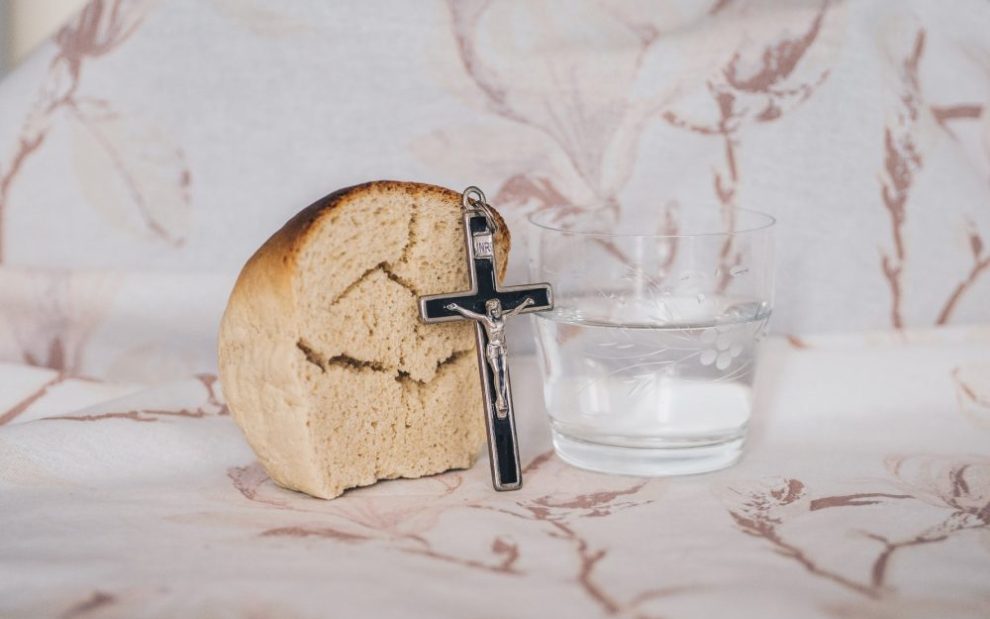Along with almsgiving and prayer, fasting is a central Lenten practice. More recently, fasting has emerged as a popular secular dieting practice too. Thanks to the multitrillion-dollar wellness industry, a Google search for “fasting” now generates far more information about fasting as a weight-loss method than it does about fasting as a spiritual practice.
For Catholics, fasting is a collective penitential practice of self-discipline. In keeping with its biblical origins, it traditionally entails partial or complete abstinence from food or drink.
However, understanding what Catholics mean by the term fasting is sometimes complicated by a technical distinction between abstinence (the restriction of specific foods) and fasting (the restriction of food in general). During Lent, for example, the U.S. bishops mandate abstinence from meat on Fridays. On Ash Wednesday and Good Friday, however, Catholics are instructed to fast in addition to this particular abstinence from meat. Here, fasting entails abstinence from all foods beyond one full meal and two smaller meals that together amount to less than a full meal.
Further complicating the definition of fasting is the popular tendency to apply the label of fasting to nearly every form of abstinence that Christians undertake. As Lent approaches, websites often exhort Catholics and other Christians to consider fasting from everything from social media to Netflix to sleeping in.
On one hand, these appropriations of fasting reflect the church’s acknowledgment that fasting from food is not the only way for faithful Catholics to participate in this seasonal penance. Universal and local church teachings exempt the sick and members of certain age groups from fasting mandates. Fasting rituals are not legalistic obligations but rather collective rituals of self-denial aimed at imitating Christ. Church teachings affirm that other forms of penance can be done in the same spirit as fasting from food.
On the other hand, some creative alternatives to fasting from food depart from a fundamental tenet of this traditional Lenten practice. As Father Daniel Merz, former associate director of the U.S. Conference of Catholic Bishops’ Office of Divine Worship, reminds us, “For the Christian, fasting is ultimately about fasting from sin.” Yet with so many forms of fasting on offer, it can be tempting to take up some alternative not as a form of thoughtful penance but as a trendy self-improvement challenge.
Catholics need not be free from the popular pressures of self-improvement or unwavering in discipline to participate faithfully in Lenten penance. However, fasting should help us refrain from and resist sin. It should, in turn, help us grow in love of God, neighbor, and self.
This article also appears in the March 2022 issue of U.S. Catholic (Vol. 87, No. 3, page 49). Click here to subscribe to the magazine.
Image: Unsplash/Kamil Szumotalski














Add comment